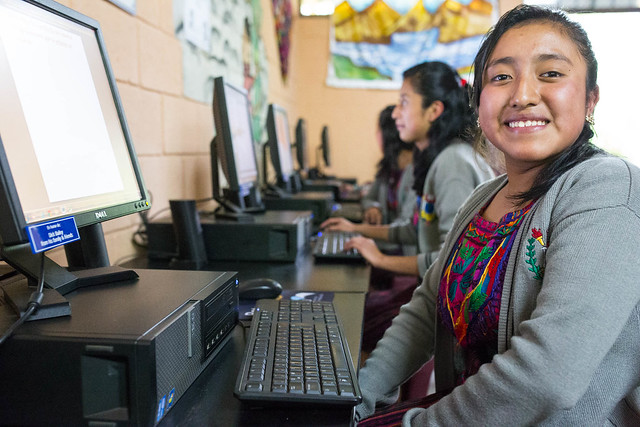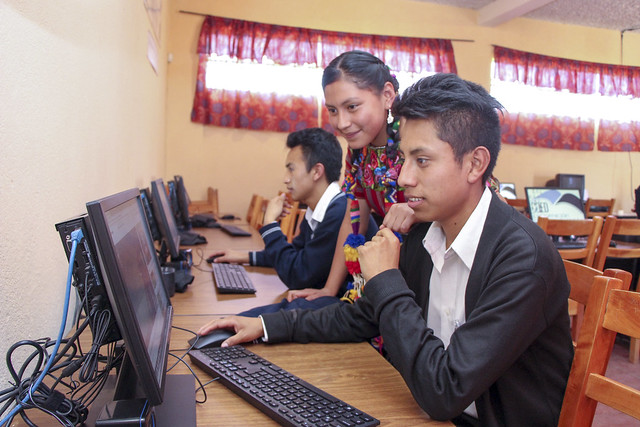Thanks to the continued support of Cooperative Education (CoEd) and the ASEA Advancing Life Foundation, families in the Guatemalan Western Highlands are receiving some much-needed access to workplace skills. Here’s the latest news from CoEd:
Together, we have been putting technology in the hands of students, so they can gain valuable skills that will help them land a higher-paying job. Approximately 60% of entry-level jobs in Guatemala require computer skills, but in some rural communities, the children have never touched a computer keyboard. Skills taught in the Computer Center Program put them in a position to give back to their communities and break the cycle of poverty in their families. According to one study, 95% of Computer Center Program graduates go on to continue their education at the high school level or get a job.
“Our graduates are working in all sorts of jobs thanks to the preparation they received in this computer lab,” says Pablo Xinico, the principal at Hacienda Maria. Since 2004, his school has saved enough money through the center’s revolving fund to upgrade the equipment in their CoEd Computer Center twice! As our partnership with CoEd grows and flourishes, we look forward to having a similar impact in the world.
Goals and methods
Thanks to your support and the hard work of our partner communities and our program team, the Computer Program reached its goals for 2022!
Set up a new Computer Center in one rural middle school
In partnership with the local communities, CoEd staff installed a brand-new Computer Center at Monte Sión, which has been part of the CoEd Textbook Program since 2016. The center received 27 computers for student use and one for the teacher. The program there is now benefiting 150 total students!
Empower teachers to deliver computer and technology education
CoEd partnered with Education Technology Consulting (ETC) to conduct teacher training to teach the standard three-year Computer Center curriculum, now that computer science is part of Guatemala’s national curriculum. Teachers will benefit from ongoing training in the years to come!
Give 200 indigenous Maya secondary-school students highly marketable technological skills
A digital version of the computer curriculum is now available via a virtual learning platform (Moodle) to ensure that students can continue learning even with reduced access to the labs. Students learn typing, the Microsoft Office Suite, web navigation and email, basic programming and coding (Scratch and HTML), and more!
Testimonials
Our students and teachers can attest to the fact that this program forever changes the quality of education in their communities!
Like eighth-grader Yenifer wrote in a thank-you letter to program supporters, “Many of us do not have the possibility of getting our own [computer], but thanks to your donation, we are fortunate to learn more about its functions every day.” Her classmate Jeferson agrees: “Being able to use a computer gives access to better learning since I will be in contact with the technology of our times, which is very important to know during these times of continuous technological development.”
As a fairly young teacher, Edvin Juan Canastuj already had some computer knowledge from his own studies. But he had never learned to properly structure his lessons for alignment with Guatemala’s National Curriculum or Digital Literacy standards. All of that changed when he attended CoEd’s training in January alongside six other newly hired teachers at existing CoEd Computer Centers this year.
In a small seminar, Edvin and his peers learned how to deliver the standard three-year Computer Center curriculum from CoEd staff in collaboration with instructors from Education Technology Consulting (ETC). They’ll benefit from ongoing pedagogical training in the years to come.
With your help, we’re continuing to supply teachers and students with high-quality, age-appropriate learning materials, allowing us to continue breaking the cycle of poverty in Guatemala through education. Thank you for all you make possible!


